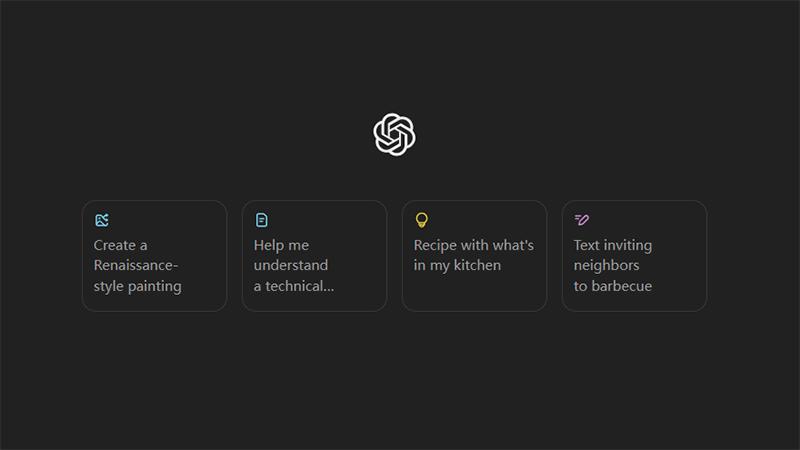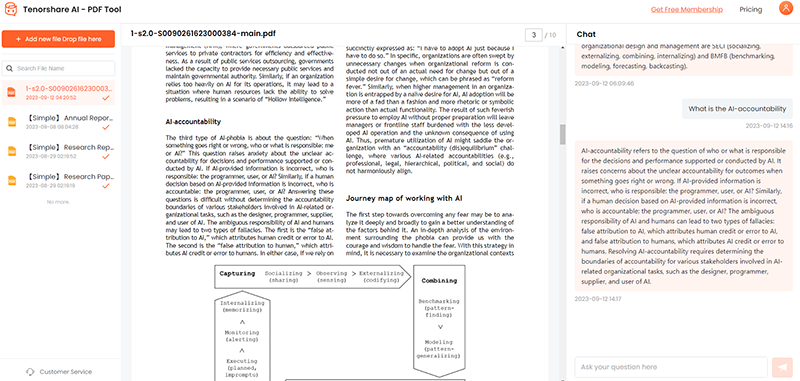10 Chatgpt for Lawyers: How to Write Legal Prompts
Lawyers are often burdened with dense document reviews, complex contract drafting, and the relentless need for precise legal research. These tasks, while critical, can consume an inordinate amount of time and detract from higher-value activities such as strategizing for cases and engaging with clients.
How can legal professionals overcome these hurdles? The answer lies in using AI technology, such as ChatGPT. However, to truly benefit from what AI has to offer, you first need to master how to create effective ChatGPT prompts for legal applications . Let's start learning!
What is a ChatGPT Prompt?

A ChatGPT prompt is a user-defined input designed to guide ChatGPT, an advanced AI language model, in generating specific textual responses. In the context of legal work, these prompts are tailored to produce legal documents, interpret clauses, or handle other tasks typically requiring legal expertise.
What Benefits Does ChatGPT Bring to Lawyers?
ChatGPT can dramatically streamline workflow for legal professionals.
-
Generate First Drafts Quickly : ChatGPT rapidly produces initial drafts of legal documents such as contracts, agreements, and letters, significantly reducing the drafting time for lawyers.
-
Ensure Accuracy and Consistency: Utilizing AI to review legal documents ensures high levels of precision and uniformity, crucial for adhering to legal compliance and minimizing potential errors.
-
Reduce Costs : Automating routine tasks with ChatGPT helps law firms decrease the expenses associated with these processes, enabling more effective resource allocation.
-
Speed Up Legal Research : ChatGPT aids in legal research by swiftly locating relevant case law, statutes, and legal precedents, enhancing the efficiency of the research process.
-
Improve Client Interactions : ChatGPT crafts standard responses to client inquiries, boosting response efficiency and freeing lawyers to concentrate on more complex client issues.
tips:
Streamline your legal workflows with Tenorshare AI PDF Tool . It allows you to interact with your documents through Q & A, and provides summarization, translation, and analysis of your legal texts effortlessly.
What Are the Use Cases of ChatGPT for Lawyers?
-
Document Review: Quickly summarize and extract critical points from extensive legal documents.
-
Legal Drafting: Generate first drafts of contracts, agreements, and other legal documents.
-
Due Diligence: Conduct thorough checks on legal histories and document compliance.
-
Legal Research: Identify precedents and relevant laws quickly.
How Do I Write Effective ChatGPT Legal Prompts?
Define the Role
First, identify who will be using these prompts. In the legal field, roles can vary significantly, from a litigation attorney to a corporate legal advisor.
Be Specific
When crafting a prompt, be clear about what you need. Specificity helps the AI generate the most relevant and useful responses.
Prompt Advice: "Draft a non-disclosure agreement for a potential merger between company X and company Y focusing on the protection of intellectual property and trade secrets."
Provide Context
Context helps the AI understand the scenario better, leading to more accurate responses. This includes details about the jurisdiction, the nature of the case, or the parties involved.
Prompt Advice: "Considering California law, draft a non-disclosure agreement for a potential merger focusing on intellectual property and trade secrets protection."
Use Legal Terminology
Incorporating precise legal terminology can significantly enhance the accuracy of AI responses, making them more suitable for professional use.
Prompt Advice: "Draft a non-disclosure agreement including clauses on confidentiality, non-use, and non-disclosure obligations as per Section 16600 of the California Business and Professions Code."
Request Examples
Especially for complex legal concepts or when training new staff, ask ChatGPT to provide examples or explanations to clarify legal principles or document structures.
Prompt Advice: "Provide an example of a clause on indemnification that can be included in a technology licensing agreement under EU law."
Final Prompt Example
Combining all these elements, an effective ChatGPT prompt for a Corporate Legal Advisor might look like this:
" As a Corporate Legal Advisor, I need to draft a non-disclosure agreement for a merger between two tech companies under California law. The agreement should focus on the protection of intellectual property and trade secrets. Include standard clauses on confidentiality, non-use, and non-disclosure, referencing Section 16600 of the California Business and Professions Code. Also, provide an example of an indemnification clause that could be applicable in this context. "
10 Best ChatGPT Prompts for Lawyers
1. Summarize Complex Legal Documents
Prompt: "Summarize this legal document focusing on key obligations and rights."
2. Draft Standard Legal Correspondence
Prompt: "Draft a letter to opposing counsel regarding settlement discussions."
3. Analyze Contract Clauses
Prompt: "Explain the implications of this non-compete clause."
4. Generate Legal Queries
Prompt: "List questions to verify the client's compliance with employment laws."
5. Edit and Refine Legal Arguments
Prompt: "Refine this draft motion for clarity and persuasiveness."
6. Research Legal Precedents
Prompt: "Find precedents for use of trademark law in technology disputes."
7. Prepare Legal Briefs
Prompt: "Prepare a brief based on these case facts and relevant laws."
8. Translate Legal Content
Prompt: "Translate this legal notice into Spanish."
9. Check for Compliance
Prompt: "Check this policy against GDPR regulations."
10. Create Marketing Emails
Prompt: "Draft a marketing email for our law firm that highlights our expertise in commercial real estate disputes and invites recipients to a free consultation webinar."
Bonus Tips for Lawyers: PDF AI Chat with Your Legal Documents

Unlock a new level of interaction with your legal documents using the Tenorshare AI Chat PDF Tool . This innovative tool is designed to transform how you work with PDFs, offering an interactive Q&A feature that allows you to converse directly with your documents. Get immediate clarifications, summaries, and translations of complex legal material at your fingertips.
Key Features:
-
Interactive Dialogue : Ask questions and get instant explanations directly from your PDFs, making it easier to navigate and understand dense legal content.
-
Smart Summarization : Quickly receive concise summaries of lengthy documents, saving hours of manual review.
-
Accurate Translation : Effortlessly translate legal documents into multiple languages, ensuring clear understanding and compliance in international contexts.
-
Deep Analysis : Dive into detailed document analysis with AI-driven insights that highlight key legal points and compliance markers.
Final Word
Embracing AI in the legal sector not only streamlines tedious tasks but also opens up new avenues for client engagement and service delivery. Tools like ChatGPT enhance legal operations, while the Tenorshare AI PDF Tool revolutionizes document management by making interactions with PDFs more dynamic. With features like QA dialogues, summarization, and content translation, these technologies empower legal professionals to deliver higher quality services with greater efficiency.
Tenorshare AI PDF Tool
- Summarize the various types of large PDF documents
- Chat with the PDF to get key information accurately
- Supports simultaneous uploading of multiple documents
FAQs
Can ChatGPT answer legal questions?
Yes, ChatGPT can answer legal questions by providing information that is generally known and publicly available. However, it's important to note that ChatGPT's responses are based on patterns in data and not legal expertise or professional judgment.
Can GPT 4 give legal advice?
No, GPT-4 cannot give legal advice. While it can generate responses based on a wide range of texts and information, it does not replace the need for a licensed attorney. Legal advice should always be sought from a qualified legal professional.
How accurate is ChatGPT legal advice?
ChatGPT's responses should not be considered legal advice. While it can provide general information and common understandings on legal topics, its accuracy cannot be guaranteed.
Can ChatGPT generate legal documents?
Yes, ChatGPT can assist in generating draft versions of legal documents. It can produce basic templates for contracts, agreements, and other legal forms based on prompts given to it.
Can ChatGPT replace a lawyer?
No, ChatGPT cannot replace a lawyer. While it can provide assistance with drafting documents and answering general questions, it lacks the ability to provide legal counsel, interpret the law, represent clients in legal matters, or handle the nuanced and critical thinking necessary for legal practice. Legal advice and services should always be conducted by a licensed and experienced attorney.
You Might Also Like
- Discover How ChatGPT Can Be Your Free AI Image Generator
- Discover ChatGPT Unblocked No Login: Access AI Chatbots Freely
- The Rise of ChatGPT: Exploring AI Conversations Without Logging In
- 40+ Best ChatGPT Prompts for Proofreading and Grammar Check in Your Writing
- 50+ Best & Effective ChatGPT Prompts for Different Writing Styles: Tips & Examples
- How to Make ChatGPT Undetectable Free? 8 Proven Methods
- ChatGPT Error: What is 502 Bad Gateway and How to Fix It?
- How to Summarizе PDF with ChatGPT? Stеp-by-stеp Guidе

